GAZA CITY, Palestinian Territories — Not far
from the edge of the port in the
Gaza Strip lies its boat cemetery: two rows of
beached fishing vessels that even Gazan ingenuity cannot salvage.
اضافة اعلان
Motors and propellers have been stripped. The
once-bright blue, green, and yellow paint on more than two dozen fishing boats
is peeling. The fiberglass on some looks as if it has been eaten away.
The boats began piling up in Gaza 15 years ago after
Israel, aided by Egypt, imposed a land, air, and sea blockade on the small
Palestinian coastal enclave in 2007. The blockade severely restricts the
movement of Gazans out of the strip and limits imports or bans them completely,
including medical equipment and construction material.
For Gaza’s fishermen, the blockade has prevented
them from buying motors, propellers, fiberglass, and many other items needed to
repair the boats and maintain a functioning fishing fleet. It has damaged a
vital but shrinking part of the strip’s economy while crimping the supply of an
important but increasingly out-of-reach part of the local diet.
Repairs and maintenance that were once easy and
affordable became too costly or scarce, causing some fishermen to just give up
and dump their unsalvageable boats in the cemetery.
“This is a war on our livelihoods,” said Miflih Abu
Rial, a fisherman and official in the fishermen’s union, standing on the bow of
one of his family’s boats, which has been in the cemetery for years.
Gazan and industry officials warn that if
Israeli restrictions are not eased, the strip’s fishing sector could completely
collapse in the next few years as more and more boats are removed from service.
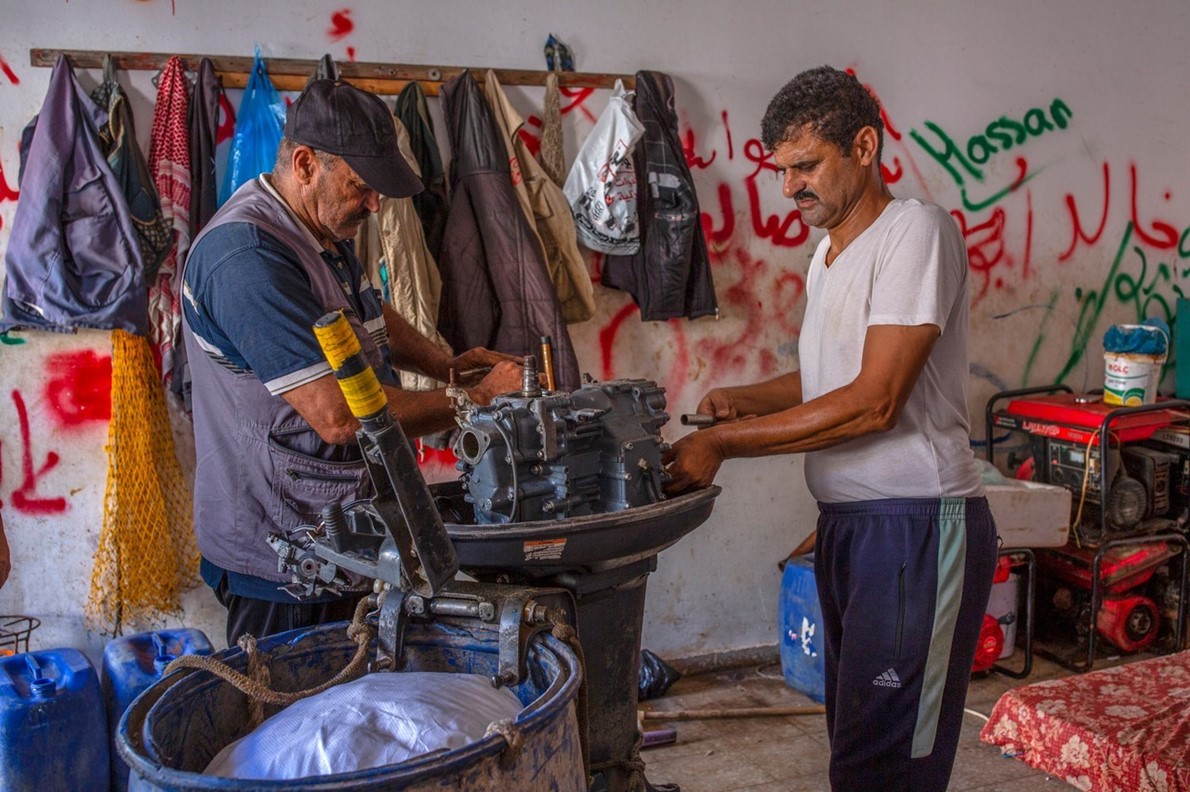 Repair work on a fishing boat outboard motor in the Gaza Strip, on July 26, 2022.
Repair work on a fishing boat outboard motor in the Gaza Strip, on July 26, 2022.
Israel says the blockade and restrictions are for
its “security” and intended to prevent Hamas from using “dual use” items —
products that Israel says can be used for both civilian and military purposes.
“Some items that serve the fishing industry are
defined as dual-use materials,” the Civil Administration, the Israeli authority
that carries out civilian policy in occupied territories under the command of
the military, said in a statement.
Israel’s blockade has devastated Gaza’s economy, in
which poverty is widespread and unemployment hovers around 50 percent.
Palestinian officials and human rights groups have long maintained that the
blockade amounts to collective punishment of Gaza’s two million residents in
the densely packed enclave.
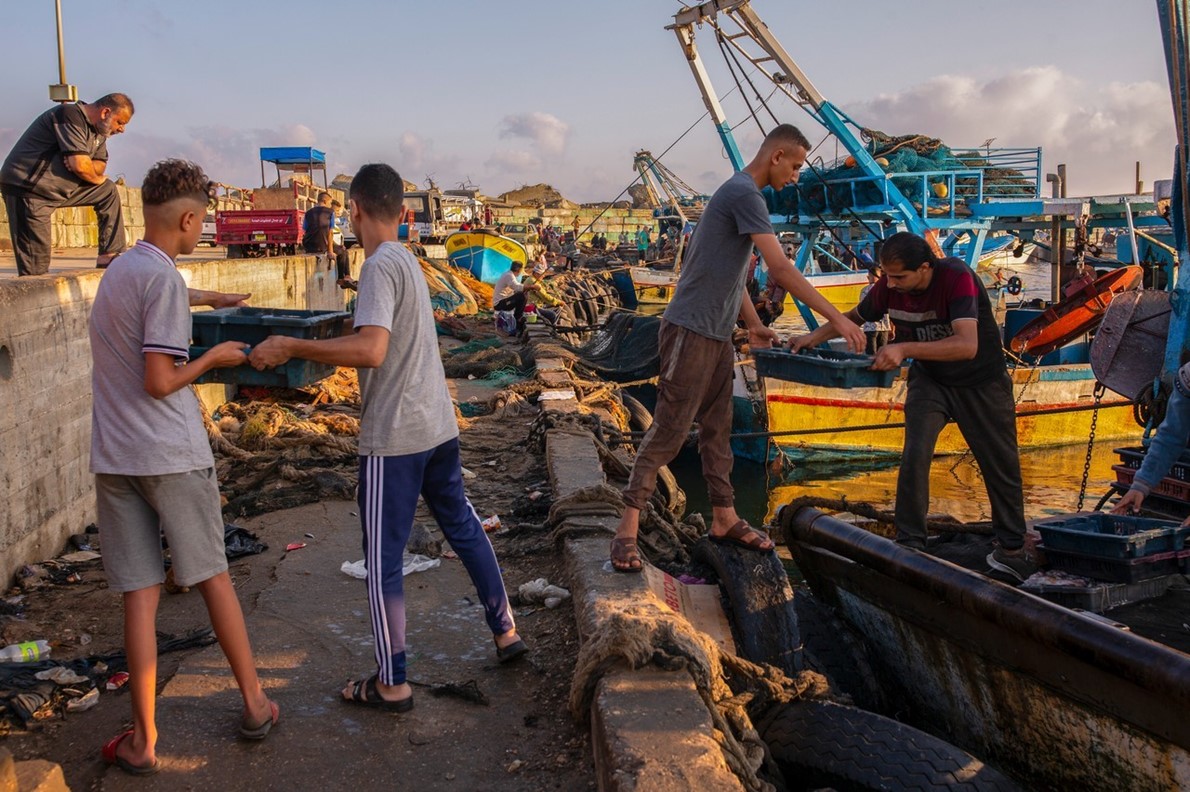 Palestinians unload their catch after fishing in the Mediterranean at a port along the Gaza Strip, on July 29, 2022.
Palestinians unload their catch after fishing in the Mediterranean at a port along the Gaza Strip, on July 29, 2022.
“The fishing sector now works at 50 percent capacity
and every day it is decreasing,” said Jehad Salah, head of the fisheries
directorate in Gaza. “When they ban the equipment needed for maintenance, then
they are forcing people to leave this industry.”
A UN-initiated program to allow maintenance and
repair materials to be sent in was finally just put into place after months of
negotiations, a UN official said.
The agreement allows individual fishermen to request
orders of dual-use materials needed to repair their boats. Each request must be
approved by both the Palestinian and Israeli sides.
Once approved, fishermen can make the order, and the
importation and distribution of the materials will be overseen by the UN.
Only a few dozen have had their orders approved so
far.
On November 13, the first batch of materials entered
Gaza, the first since 2007, a shipment that included 227kg of fiberglass, 500kg
of polyester resin and a total of 31kg of blue, white, and yellow paint.
Next month, motors will be allowed in, Salah said.
He added that he was withholding judgment on the program’s success.
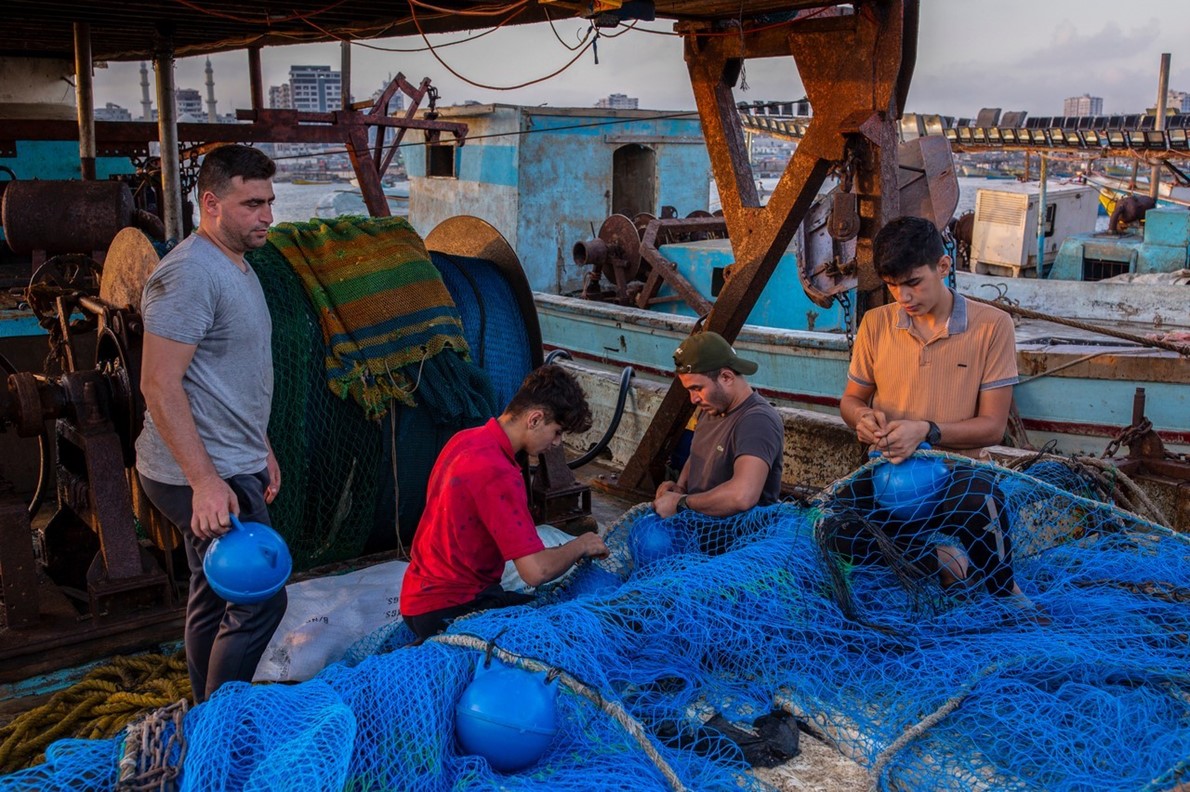 Palestinians mend their fishing nets at a port in the Gaza Strip, on July 29, 2022.
Palestinians mend their fishing nets at a port in the Gaza Strip, on July 29, 2022.
The Israeli civil administration said the materials
will be brought in under strict security and supervision.
For Gaza’s fishermen, the negative effect of the
blockade is multifold. In addition to the limits on goods coming in, the naval
blockade restricts how far out into the Mediterranean Sea fishermen can go and
thus how much and the type of fish they are able to catch.
Palestinian fishermen are at risk of being shot at
by
Israeli coast guard and being detained or having their boats confiscated by
Israel if they get too close to the boundaries of the permitted fishing areas.
There have been more than 300 shooting episodes this year, according to the UN,
with 14 fishermen injured. At least 47 have been detained by Israel.
In June 2016, the brothers of Abu Rial, the
fisherman, were on one of eight boats owned by their family when it was seized
at sea by Israeli forces. The boat was returned to them nearly two years later
but needed extensive repairs to make it seaworthy again. Family members did not
have the money, nor could they find the necessary parts, so the boat was put in
the cemetery.
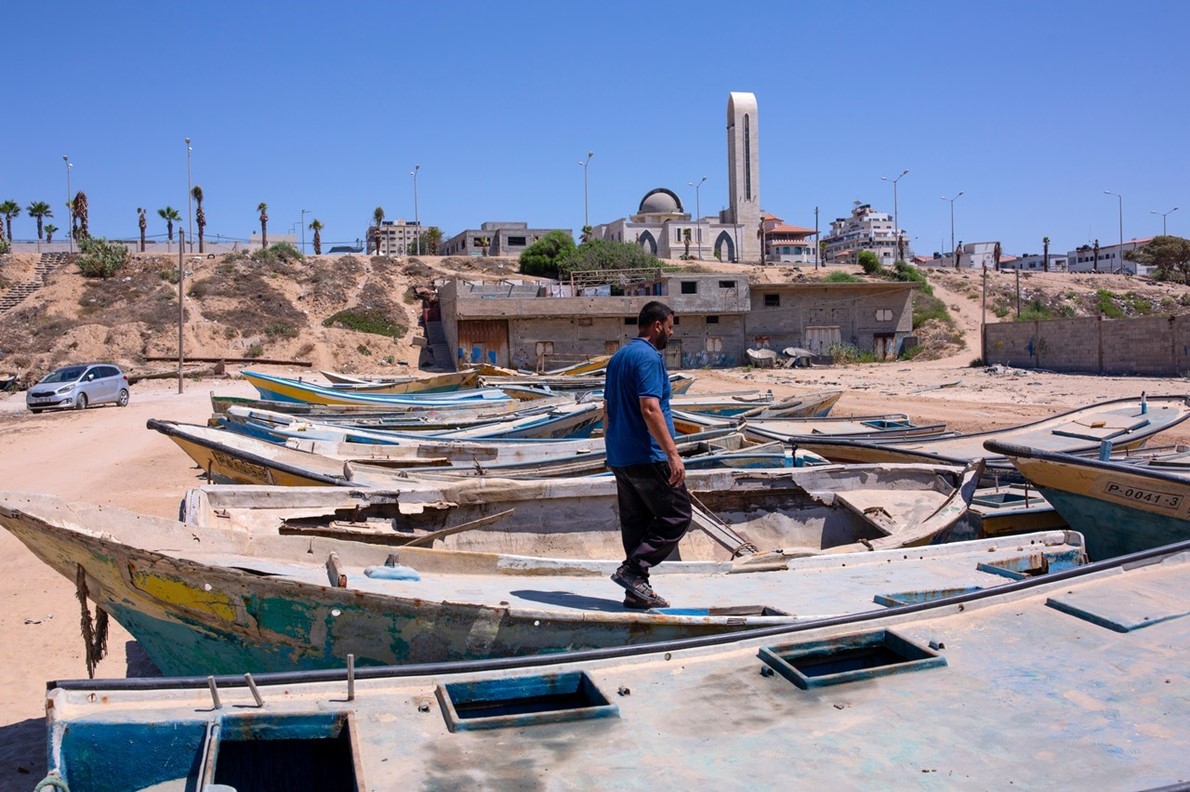
Now Abu Rial, 44 and a third-generation fisherman,
uses another aging boat with a motor that has been on its last legs for the
past two years. Sometimes the mechanic must fix it three times a week. Other
times, Abu Rial goes weeks without fishing because the motor will not work.
Recently, he had to sell some of his wife’s gold
jewelry to pay bills.
“After I get the motor fixed, I just pray that it
will last a week or even a day,” he said, standing outside his family’s storage
room at the port. Inside, the walls are covered with graffiti scrawled by their
children, who occasionally visit the port to begin learning the family trade. A
rusting refrigerator laid on its back is filled with old and spare boat parts.
Farther down the port, along a breakwater built
using rubble from previous wars in Gaza between Hamas and Israel, Methat Redwan
Bakir’s boat has been tied up for years.
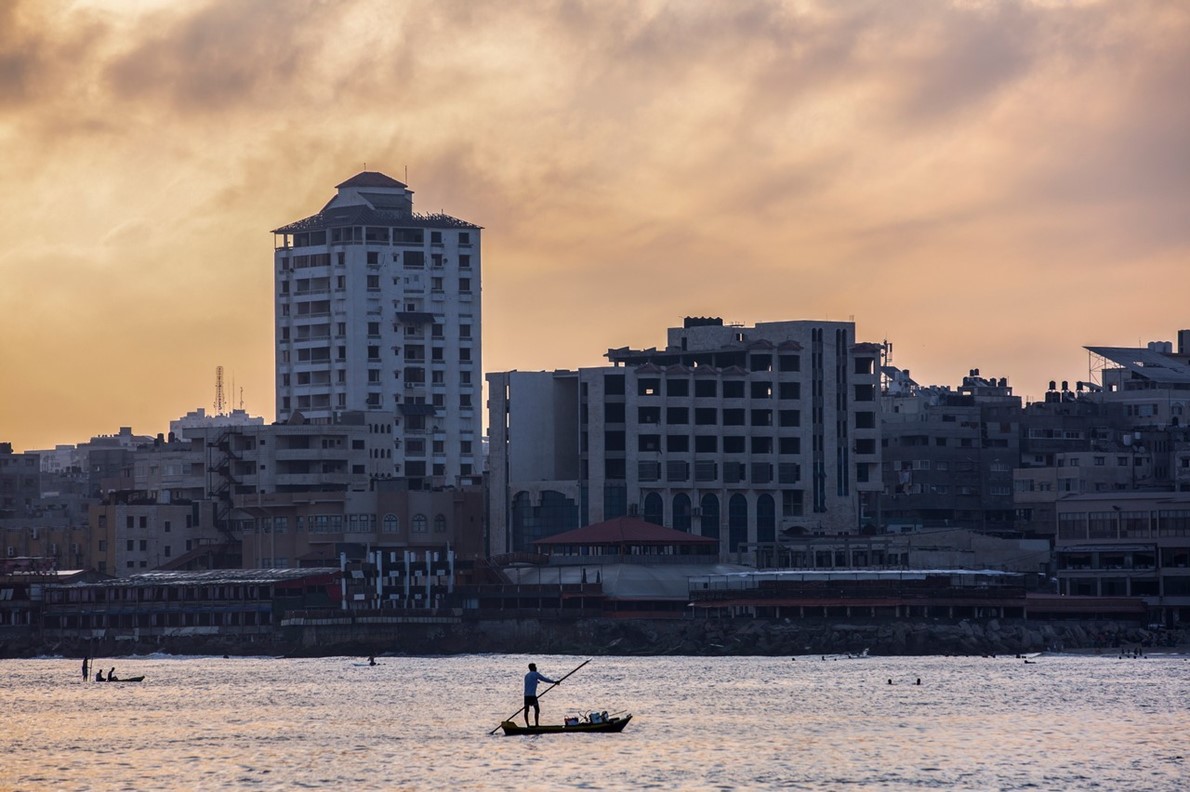
“The Israelis took it for three years and returned
to me with no nets and no engine and no lights,” he said. “It hasn’t moved
since it came back.”
Bakir’s brother and 11 other fishermen were on the
boat in 2016 along the northern fishing limit when they were shot at by the
Israeli coast guard, which also fired water cannons at the vessel, he said. The
boat was confiscated and all 12 crew members detained. Ten of them were
released the next day, and Bakir’s brother was detained for 18 days before
being let go. Another man was imprisoned for five years.
For decades, the boat supported five families on
which they could make up to $1,000 a day from fishing.
It would have cost Bakir, 57, a father of four
daughters, several thousand dollars to fix. So, he tied it up and abandoned it.
In the green murky waters nearby, Bakir watched as a
group of young men learned the trade, working to unravel fishing nets and
preparing to go out to sea. But it remains unclear how long this industry can
survive here.
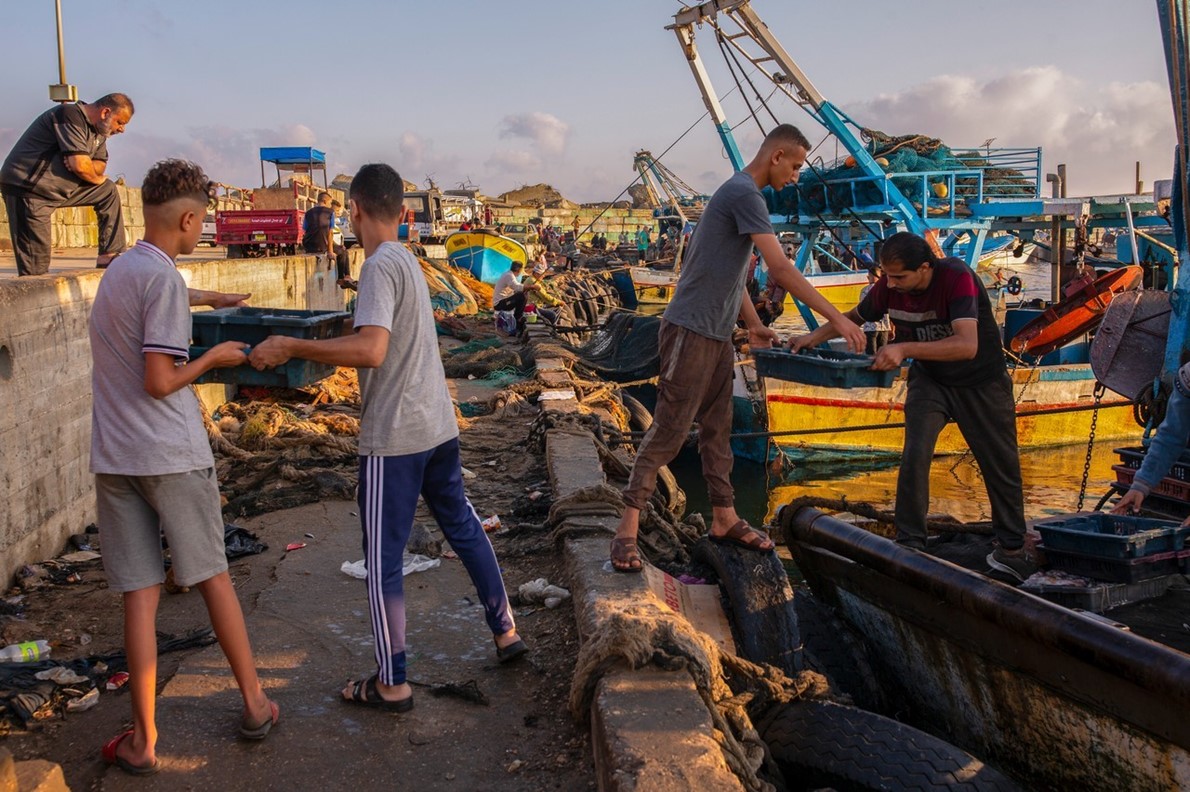
Now, Bakir goes out on a 6m-long flat-bottomed boat
with a 20-year-old motor that breaks down as often as it works. And instead of
using nets, he relies on a rudimentary mix of equipment: fishing rods, plastic
bottles, and multiple baits.
In the sand next to his boat lies a small banner
from a past solidarity protest: “Viva Palestina”, it reads, and, “End the
occupation”.
With a dwindling number of functional motors in
Gaza, increasing numbers of fishermen are using paddle boards to continue their
trade. On any morning, men standing atop wide two-person boards, loaded with
nets, can be seen going out to sea.
“The paddle board is a new thing, but it is very
dangerous,” said Salah, the fisheries director.
Ashraf Al-Aawoo, 47, had been using a paddle board
for months after his boat fell into disrepair.
But one day in the spring, he and a partner found
the fish plentiful. The net bulged with fish, but the paddle board could not
take the heavy weight and sank.
Aawoo, deeply tanned from a lifetime on the water
and under the sun, had to swim more than a half a kilometer back to shore with
his fellow fishermen.
The Gazan coast guard fished the paddle board out of
the water.
Even if he had the money to repair it, there is not
any fiberglass in Gaza to buy, Aawoo said.
In frustration, he dragged the board from the sandy shore to
the entrance of the port and left it on the road shoulder as a statement — like
a sole cemetery plot for another Gazan boat.
Read more Lifestyle
Jordan News



